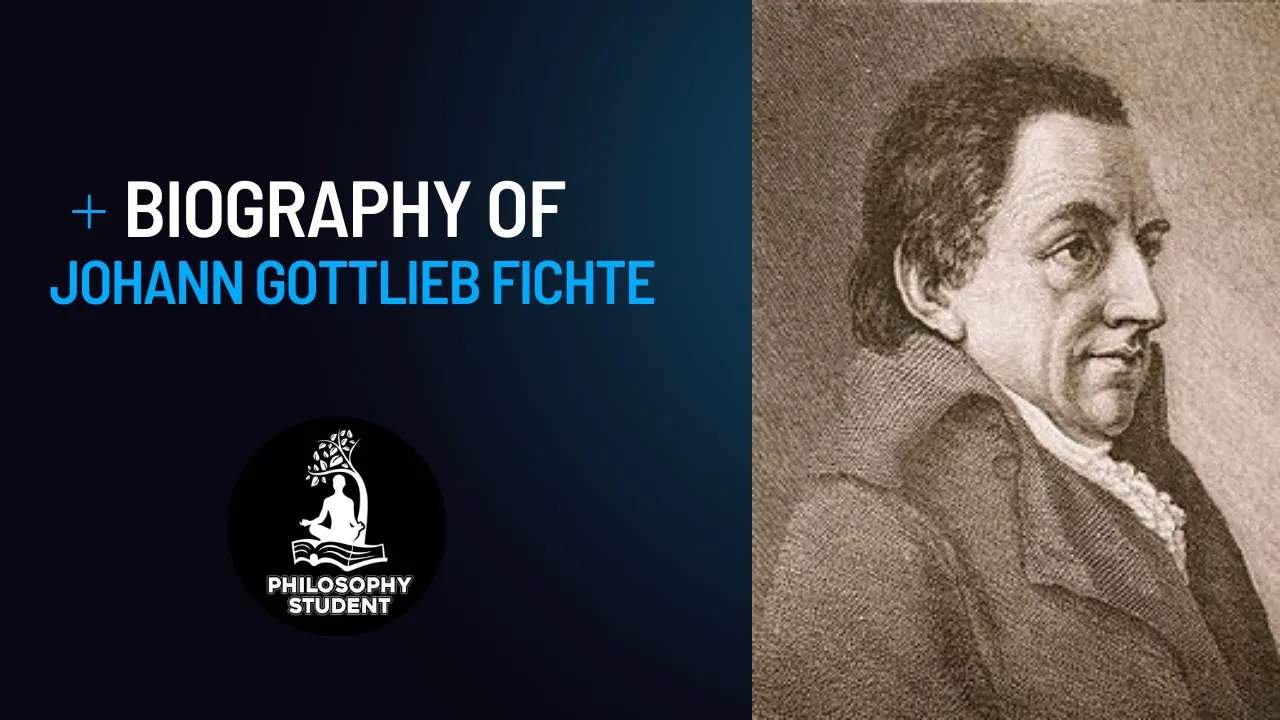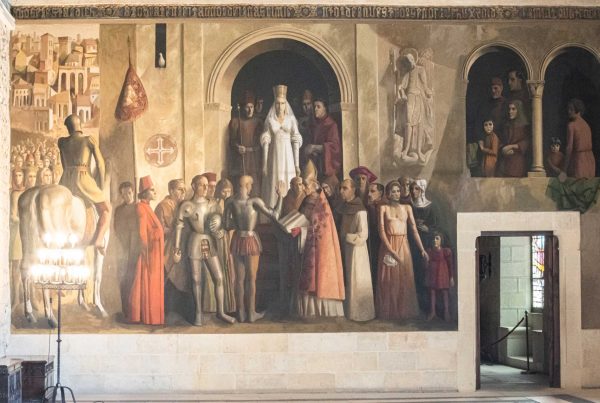The life of Johann Gottlieb Fichte spanned the development of German Idealism between the death of Kant and the emergence of Hegel. He was thus a major figure during the German Romantic Movement in philosophy and literature and was highly regarded in his own day. Until recently, modern students of philosophy tended to relegate him to a transitional role between two giants of German philosophy, Kant and Hegel, but, today, Fichte has increasingly emerged as a great philosopher in his own right.
Born in Saxony on May 19, 1762 into to a family of impecunious ribbon makers, Fichte secured the patronage of a Saxon nobleman who financed both his preparatory education and his subsequent study at the universities of Jena and Leipzig—at least up to a point. The young man set out to earn a degree in theology, but, about 1784, left the university because he ran out of money. He supported himself for some years as an itinerant tutor. His vocational travels took him to Zurich, where he met Johanna Rahn, whom he subsequently married.
Hired in 1790 to tutor a university student in Kantian philosophy, Fichte immersed himself in that philosopher’s work. Whatever effect this had on his student, it profoundly transformed Fichte, who rejected determinism or, rather, prompted him to reconcile freewill and determinism in the manner of Kant’s categorical philosophy.
Armed with his new enlightenment, Fichte journeyed to Königsberg to meet personally with Kant. His discussion with the master, on July 4, 1791, did not impress Kant. Undaunted, Fichte wrote an essay on the relation of Kant’s critical philosophy to divine revelation. The work won Kant over, and the philosopher persuaded his own publisher to publish Fichte’s An Attempt at a Critique of all Revelation in 1792. Although Fichte based his work on Kant’s dictum that religious belief must hold up under rational ethical scrutiny, Fichte was more radical than his mentor. He concluded, in effect, that Christianity did not meet the test of rational scrutiny, especially because original sin is incompatible with the ethical standard of human justice supported on moral law.
Continuing to support himself by tutoring. Fichte published Contribution to the Rectification of the Public’s Judgment of the French Revolution, which cemented his reputation as a radical political philosopher. He married in October 1793 and accepted in May 1794 the chair of the philosophy department of the University of Jena.
During his tenure at Jena, 1794-1799, Fichte wrote his most important works. He developed a professional persona less as a philosopher than as a scholar in the public service. As he argued in a popular series entitled “Some Lectures Concerning the Scholar’s Vocation,” the task of the philosopher was to offer rational guidance toward the creation of a free, harmonious society and to be, in short, a teacher of humankind as it struggled toward perfection.
Fichte developed a philosophical system he called the Wissenschaftslehre, sometimes translated as “science of knowledge” but usually left in the original German. Thus, the translation of his 1795 exposition of his system was titled Foundations of the Entire Wissenschaftslehre. The book argued that all truly philosophical thought must be grounded in epistemology and phenomenology. Experience, Fichte argued, rests on an “Absolutely Unconditioned Principle,” namely The I posits itself.
In some ways, Fichte spent the rest of his career explaining and justifying his philosophical system, and one such work, The Vocation of Man, published in 1799, defined the human intellectual journey as a progress from doubt to knowledge and from knowledge to faith. It was widely received as Fichte’s most important literary work. In 1806, he attracted much attention with the publication of a series of lectures titled The Characteristics of the Present Age, which analyzed the Enlightenment, defining it in terms of general human intellectual evolution but also noting that it fell short of the highest aspect of the life of reason, namely the attainment of rational belief in the divine order of the universe. Characteristics was followed, also in 1806, by The Way Towards the Blessed Life, exploring the possibility of a union between the finite self-consciousness and the infinite self, namely God.
In 1810, Fichte assumed the chairmanship of philosophy faculty of the newly founded University of Berlin, of which he became rector the following year. In 1813, when the German Campaign was fought against Napoleon in the War of the Sixth Coalition, Fichte abruptly left academe to fight in the “War for Liberation.” He contracted a fever, from which he died on January 29, 1814.




































